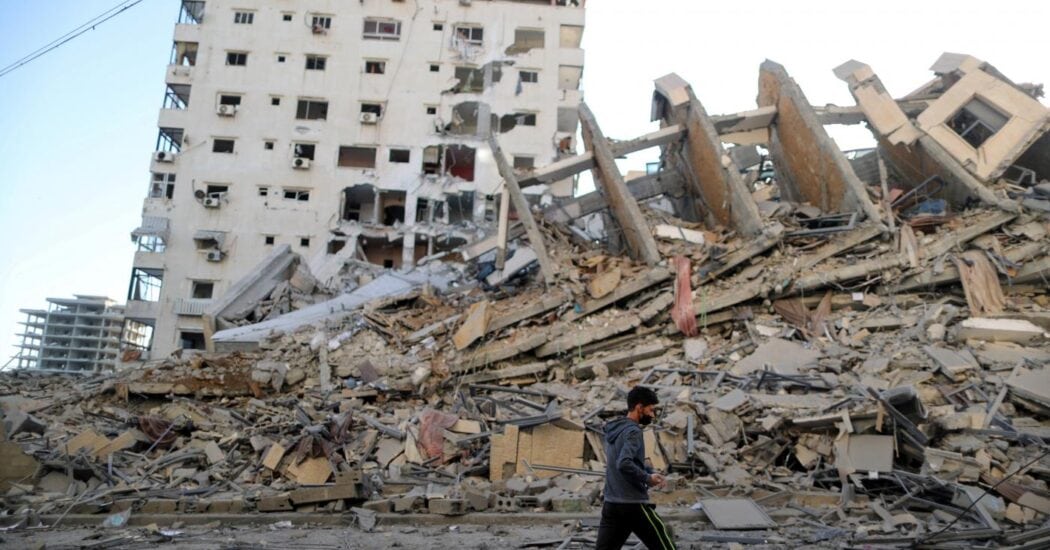
Running orders
They call us now,
before they drop the bombs.
The phone rings
and someone who knows my first name
calls and says in perfect Arabic
“This is David.”
And in my stupor of sonic booms and glass-shattering symphonies
still smashing around in my head
I think, Do I know any Davids in Gaza?
They call us now to say
Run.
You have 58 seconds from the end of this message.
Your house is next.
They think of it as some kind of
war-time courtesy.
It doesn’t matter that
there is nowhere to run to.
It means nothing that the borders are closed
and your papers are worthless
and mark you only for a life sentence
in this prison by the sea
and the alleyways are narrow
and there are more human lives
packed one against the other
more than any other place on earth
Just run.
We aren’t trying to kill you.
It doesn’t matter that
you can’t call us back to tell us
the people we claim to want aren’t in your house
that there’s no one here
except you and your children
who were cheering for Argentina
sharing the last loaf of bread for this week
counting candles left in case the power goes out.
It doesn’t matter that you have children.
You live in the wrong place
and now is your chance to run
to nowhere.
It doesn’t matter
that 58 seconds isn’t long enough
to find your wedding album
or your son’s favorite blanket
or your daughter’s almost completed college application
or your shoes
or to gather everyone in the house.
It doesn’t matter what you had planned.
It doesn’t matter who you are.
Prove you’re human.
Prove you stand on two legs.
Run.
Palestinian American poet’s Lena Khalaf Tuffaha Running Orders was circulating widely on the internet in 2014, when over 2100 Palestinians, most of whom were civilians, were killed during Israel’s “Operation Protective Edge.”
Sadly nothing much has changed. At least 232 Palestinians, including 65 children, were killed during the Israeli bombardment of Gaza that ended with the May 20 ceasefire.
Sometimes you search for the words to write a poem. And sometimes the words of a poem find you. In the summer of 2014, I spent many hours glued to various screens, helpless and disempowered as yet another war on Gaza began. In the beginning, I engaged. I wrote letters to editors, called my elected representatives, and shared all the information I could on social media sites. I participated in weekly protests in my city. But with each passing hour, with each attack more ferocious than the one before, I felt my words withering away. Among the many news reports that I watched, I remember an interview with a woman who described a phone call that she and her neighbors had received from the Israeli military. “They call us now” she said. The irony of a phone call announcing an impending death from which there was no chance of escape was a glowing ember inside her words. For days and nights those words played over and over in my head. And I began to write.
Lena Khalaf Tuffaha describes how the poem came to be
The Nova Scotia Advocate mostly publishes poets from Mi’kma’ki and Nova Scotia, but international solidarity matters and we wanted to let the many members of the Palestinian diaspora who have made Nova Scotia their homes know that they are not forgotten.
The poem is published in Water and Salt, published by Red Hen Press. It is republished here with the poet’s generous permission. Lena Khalaf Tuffaha asks that people make a donation to the Palestine Children’s Relief Fund.
Check out our new community calendar!
With a special thanks to our generous donors who make publication of the Nova Scotia Advocate possible.
Subscribe to the Nova Scotia Advocate weekly digest and never miss an article again. It’s free!



